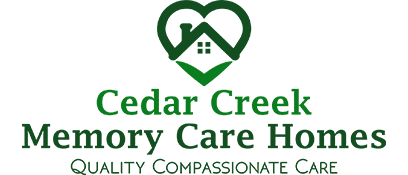Loving someone sometimes means making difficult decisions for them. Some seniors need assistance and monitoring to function safely in their day-to-day lives as they get older. Luckily, that’s where memory care facilities come in.
If you have a loved one who’s ready to transition to senior living, you might be wondering where to start. Here’s a rundown on how to find a memory care facility.
The Importance of Specialized Memory Care
There’s a growing need for specialized memory care facilities due to the rise in dementia and Alzheimer’s disease cases. And if your loved one has dementia or Alzheimer’s, it’s important to understand that they need specialized care. Assisted living facilities are a good option for seniors who need some help, but dedicated memory care units have facilities, staff and programs built entirely around dementia needs.
What Sets Memory Care Facilities Apart
Memory care is an assisted living facility specially designed for patients with dementia or Alzheimer’s disease. The community is set up in a way to make life easier for people with memory problems. For example, there may be lots of pictures and signs to guide people, a structured routine for comfort and 24/7 monitoring.
The Role of Trained Caregivers in Memory Care
One of the main benefits of memory care is the access to trained professionals who understand cognitive challenges and can provide emotional support. Individuals struggling with dementia often deal with emotional outbursts and personality changes, can wander off property and may need help with basic tasks. A memory care facility employee has been specifically trained to support and handle any of these issues.
How to Compare Memory Care Communities: Key Considerations

Assessing Your Loved One’s Needs
When you’re evaluating memory care facilities near me, you’ll find most facilities ask you to fill out a memory care assessment. These short questionnaires serve two purposes:
- Confirm that your loved one does need memory care over assisted living
- Get an understanding of the level of care your loved one needs
A memory care facility needs to have an understanding of the severity of dementia in a patient so it can prepare for an appropriate level of supervision and care.
Memory Care Checklist: Essential Features to Look For
When evaluating memory care facilities, you’ll want to find a community that offers everything your loved one will need. Here are some of the key memory care services and amenities top memory care communities offer:
- 24-hour care
- Specialized activities to improve memory
- A comfortable setting that doesn’t feel like a hospital
- Assistance with daily activities (dressing, showering, eating, etc.)
- Nutrition monitoring
- Medication management
- Fun activities, like fitness classes, art classes and movie nights
- Access to other health and wellness providers, like massage therapists, dentists and physical therapists
Questions to Ask
Here’s a list of questions to ask memory care facility staff as you evaluate your options:
- What is the staff-to-resident ratio?
- What are the different levels of care you provide?
- What kind of training or dementia care expertise do staff have?
- What does a typical day look like for residents?
- When and how will I receive updates on my loved one?
- What is the cost of memory care? Do they accept long-term care insurance?
- Do they offer end-of-life care support (e.g., coordinating with hospice) if a resident’s health declines significantly?
Take a Tour
To find the right facility, it’s highly recommended you take a tour of the senior living community. Try to schedule the tour early in the day so you can get a sense of how patients get to spend their days. Make sure to speak to the caregivers to get a sense of their mindset toward the residents.
The Role of Family in the Memory Care Journey

Providing Emotional Support for Your Loved One
Transitioning to a memory care facility will be a big change for your loved one, and they’ll need your support. It’s important that close family members are involved in the transition. Your loved one needs to know they aren’t abandoned. You can help calm these types of fears with frequent visits and ongoing engagement with the memory care community.
Leveraging Support Groups and Resources
As a family member, you may also be struggling with this change. It can be hard to see your loved one deal with dementia. Family members should remember to care for themselves and work through their feelings, too. Connecting with support group members and other families who’ve gone through similar experiences can be very helpful.
Cedar Creek’s Approach to Memory Care
Why Cedar Creek Stands Out
Cedar Creek has a person-centered approach when it comes to memory care. Our unique amenities are tailored for residents with dementia or Alzheimer’s. Here are some of the fundamental parts of our dementia care services that elevate the kind of care your loved one will receive:
- Small, homelike environments that make our residents feel like they’re living in a home
- Staff trained and experienced in dealing with all levels of dementia
- Individualized interventions with an activities therapist so every patient gets the exact type of memory care activities they need
- Small staff-to-resident ratios
- Staff who’ve been consistently working at Cedar Creek for years, so your loved one doesn’t have to deal with new faces every few weeks
Discovering the Cedar Creek Difference
Cedar Creek prioritizes healthy aging for our memory care residents. We believe every patient deserves a personalized approach to their care plan. Our comprehensive care plans help our patients stay safe and thrive in their new environment.
Cedar Creek has five homes to suit a variety of needs. Four of our homes have up to eight residents each. Our larger home has a maximum of 14 residents. All these homes offer full assisted living services that are tailored to fit the current needs of the residents.
Learn More About Cedar Creek
You can learn more about Cedar Creek’s offerings for dementia care here. Or call us at 301-384-4017 to discuss specific needs and get answers to your questions. Our team is here to help you find the memory care program that works for your circumstances.
Making an Informed Decision for Your Loved One’s Health
Finding the right memory care community that offers comprehensive care and support is vital for your loved one’s happiness. The right community will help you see that you’ve made the best decision possible for your loved one to be happy and safe.
Don’t forget to use the Cedar Creek memory care checklist and resources to help guide you through your search for the best memory care facility for your loved one.





